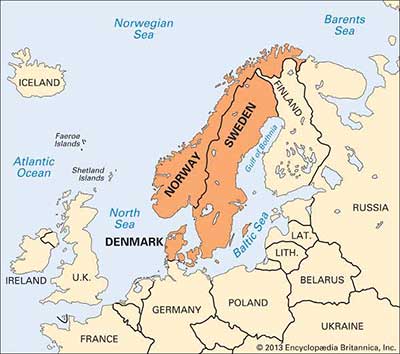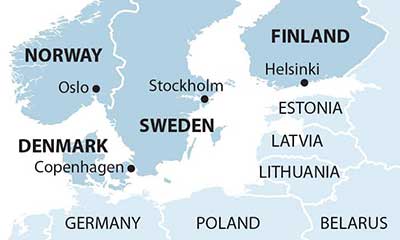Nordic countries see Multilateralism as key to combat climate change and nature loss
The 2020 consultations between the five Nordic countries – Denmark, Finland, Iceland, Norway and Sweden – and the United Nations Environment Programme (UNEP) generated substantial and frank discussions on issues like climate change, nature and sustainable development. Nordic countries recently observed the importance of multilateralism in an increasingly complex world, and the global role of UNEP in tackling unsustainable consumption and production to address the three planetary crises of climate change, biodiversity loss and pollution.
Areas of debate among Nordic countries :
Nordic countries discussed Sustainable Development Goals (SDGs), including the elimination of poverty and inequalities. The discussions emphasized the linkages between Sustainable Development Goal 12 (SDG 12), which covers sustainable consumption and production, and environmental challenges. As worldwide consumption and production — driving forces of the global economy — currently rest on increasing the use of the natural environment and resources, they continue to have a destructive impact on the planet. The sustainability of food systems was also on the agenda, as was the relationship between UNEP and various multilateral environmental agreements. Looking ahead towards 2022, the discussion included how to make the best use of the Stockholm+50 Conference, the commemoration of the 50th anniversary of UNEP, also known as UNEP@50, and the upcoming fifth UN Environment Assembly.
Declaration on Nordic carbon neutrality :
Last year, the prime ministers of the Nordic countries committed to working towards carbon neutrality with the Declaration on Nordic Carbon Neutrality. The Nordic Council of Ministers also signed up to a new vision to become the world's most sustainable and integrated region by 2030, working together to promote a green, competitive and socially sustainable Nordic region. When it comes to the health of our oceans, the Nordic countries have been strong supporters of ensuring a solid global response to marine litter and microplastics under the auspices of UNEP.
While only constituting five countries (or 2.6 per cent) out of UNEP’s 193 Member States, the Nordic countries together provided over 18 per cent of the funding to the Environment Fund from 2015 to 2020, amounting to US$ 77.5 million. In addition, they contributed over US$ 205 million in earmarked funding for thematic areas during the same period.
About The Environment Fund of UNEP :
The Environment Fund is the core source of flexible funds to the United Nations Environment Programme (UNEP). It provides the bedrock for our work worldwide as we support countries to deliver on the environmental dimensions of the 2030 Agenda. To support the Environment Fund, each of our 193 Member States is encouraged to contribute their Fair Share, as represented by the ‘Voluntary Indicative Scale of Contributions’, established in 2002 by the Member States themselves. The scale considers each country individually and distributes responsibility collectively. Paying the Fair Share matters, because investing in UNEP means investing in the health of the planet and its people.

About Nordic countries :
The Nordic region, or Norden, may be defined as consisting of the five sovereign states Denmark, Finland, Iceland, Norway and Sweden, plus the three autonomous territories connected to these states: the Faroe Islands and Greenland (Denmark) and Åland (Finland). These states are widely considered to form a distinctive region by virtue of their strong historical ties and the tradition of inter-governmental co-operation across national boundaries.

Scandinavia vs the Nordics :
The terms Scandinavia and Scandinavian are often used as synonyms for Norden and Nordic in English. Some insist that Scandinavia refers just to Denmark, Norway and Sweden (or even just to the Norwegian-Swedish peninsula), and does not include Finland or Iceland. Although the term Scandinavia is still used to refer to the whole region, Nordic is becoming increasingly common.







